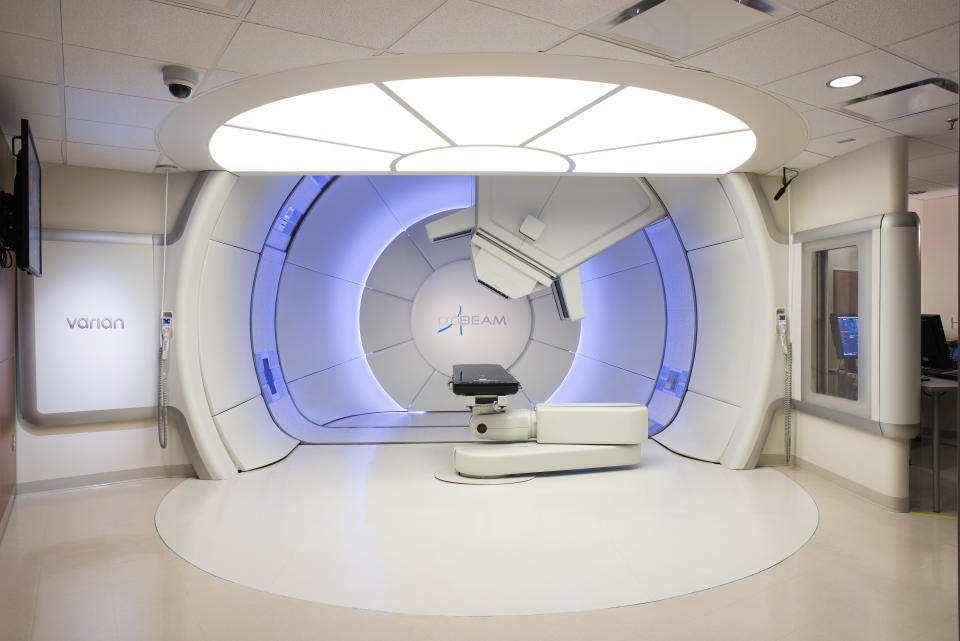Proton therapy system seeks to offer safer treatment for cancer patients in Singapore

SINGAPORE — Cancer patients in Singapore can soon choose a safer treatment with the ProBeam Proton Therapy System, the first of such advanced radiation treatment system in Southeast Asia, Australia and New Zealand.
The system, which costs about $32 million, has been successfully installed at the Biopolis by Proton Therapy, a subsidiary of healthcare diagnostics service provider Singapore Institute of Advanced Medicine Holdings (SAM). It is scheduled to be operational in early 2020.
It administers proton therapy treatment, a technologically-advanced method whereby high-energy proton beams target and kill cancer cells with precision.
This means that, unlike the standard method of X-ray radiation therapy, less radiation is given out beyond the affected area, thereby reducing the risk of healthy-tissue damage due to side effects.
Promise in treatment of several kinds of cancer
Proton therapy has shown promise in treatment of several kinds of cancer, such as cancer of the prostate, spine, head and neck. It is also useful for treating childhood cancers, as children receiving such treatment have a lower risk of abnormal growth.
More than 150,000 cancer patients worldwide have been treated using such therapy. Malaysian badminton star Lee Chong Wei was one of them, undergoing such treatment in Taiwan after being diagnosed for nose cancer in 2018.

Dr Djeng Shih Kien, SAM’s founder and chairman, said during a presentation of the installed system at Biopolis on Tuesday (14 May) that such advance medical technologies could dramatically improve the outcome of healthcare and the quality of life for patients.
The 73-year-old added, “Patients benefit from faster scan times, lower radiation dosage, as well as early and accurate detection of small lesions – all performed in an environment which offers patients an experience free from anxiety and stress.
“This advanced treatment technology has the potential of offering new hope to many cancer patients. I believe it will be a game-changer in radiation therapy.”
High cost of treatment
The biggest drawback for such treatment is its high cost. It is estimated to be about 2.5 times higher than current radiation therapy, which can range between $100,000 to $200,000 yearly.
To address this issue, SAM said that two companies, Aviva Singapore and DBS/POSB, have included proton therapy treatment as part of their insurance benefits.
Aviva Singapore, for example, has the Medisave-approved MyShield plan which introduced a new benefit in January for proton beam therapy, with shared benefit limits for inpatient and outpatient treatments ranging from $10,000 to $25,000 a year.
The installed system now awaits being encased in reinforced concrete walls to prevent radiation out of the treatment room. It then has to be approved for usage by both the Ministry of Health and the National Environment Agency before going operational.
Other Singapore stories:
Expect showers for next 2 weeks, warm conditions on non-rainy days
Facebook launches new feature to help users have more control of their News Feed
Administrative blunder: Sports Journalist of the Year awarded to wrong winner


